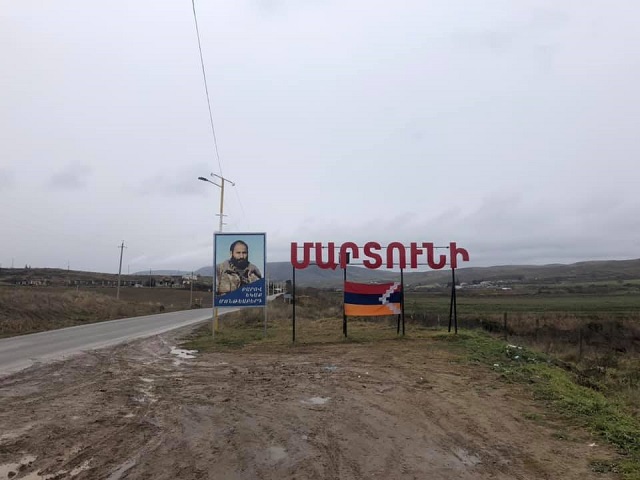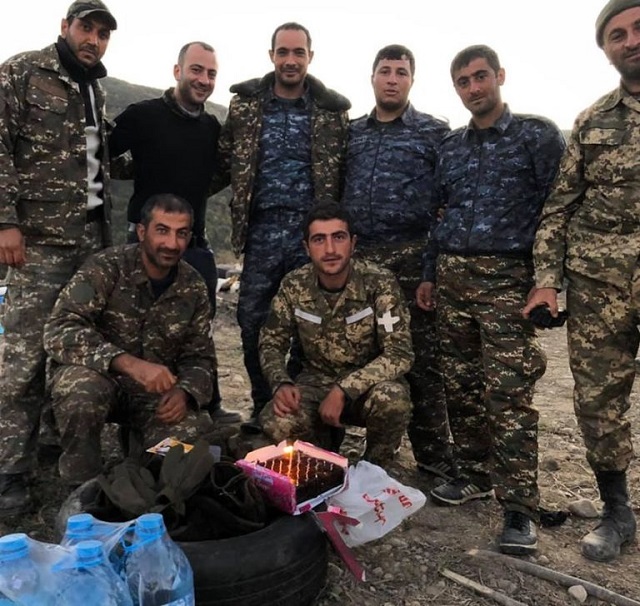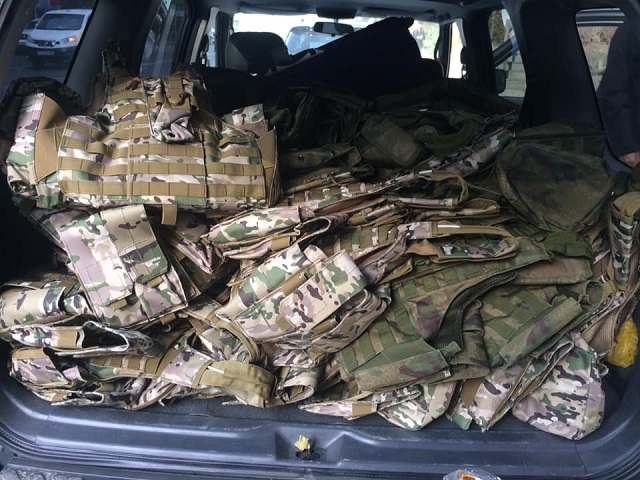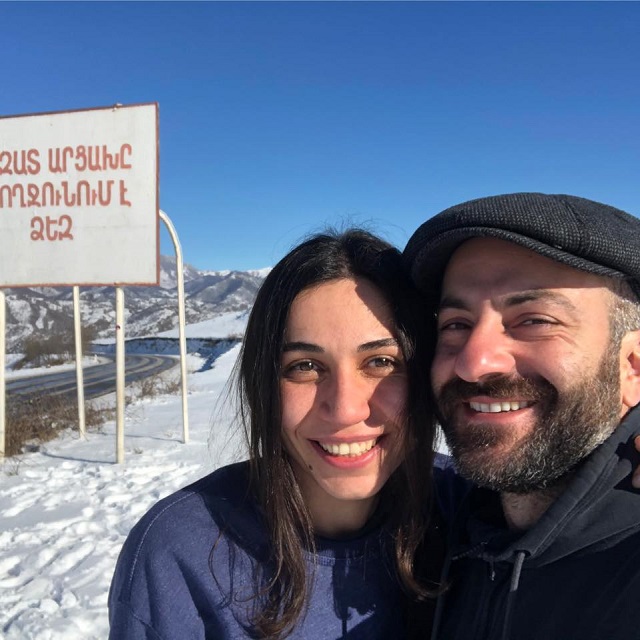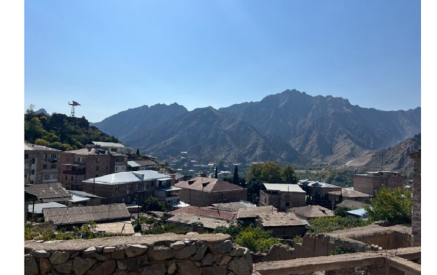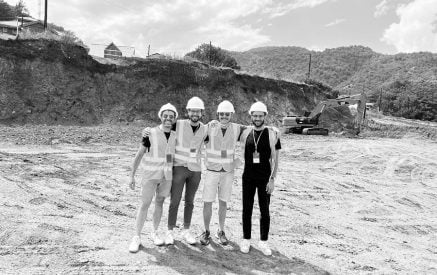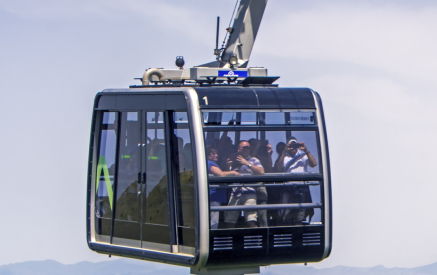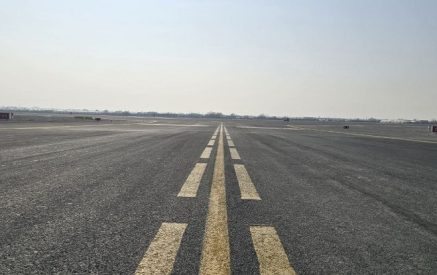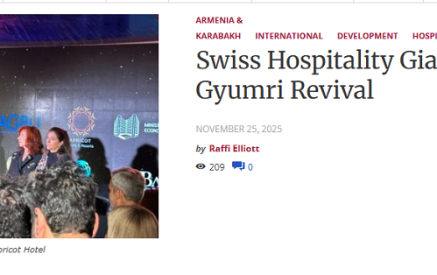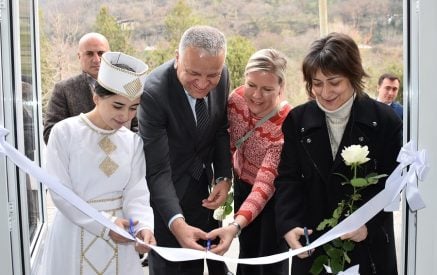YEREVAN—Shant Charshafjian has a million things on his mind, but in his heart, there is a special place for Martuni.
Life in the once peaceful, rural region took a turbulent turn this past fall when villagers became live targets for Azerbaijan’s indiscriminate attacks, destroying much of the community in the grim aftermath of the Artsakh War.
Charshafjian, a Los Angeles native and traveling wartime volunteer, never made it to Martuni during the war, but he never forgot the resilience that has long defined the generations of families who call those sacred lands their home. The heroic spirit of Monte Melkonian—the legendary commander of the Martuni front during the Artsakh Liberation War—lives in the hearts of nearly every villager. While thousands fled when war broke out in late September, the mayor of Martuni reported that about 400 people remained to take part in the defense of the city.
Read also
“They’re a different breed,” described Charshafjian during a recent interview with the Weekly from his temporary residence in Yerevan. Charshafjian, who has since been visiting broken and grieving families of both fallen and wounded soldiers, recalled his encounter with a Martuni mother who lost her only son during the war. She told Charshafjian she would send her son to the frontlines again, because as a 14-year-old volunteer nurse during the Artsakh Liberation War, she witnessed first hand the patriotic spirit and might of Melkonian. “The soldier has to know what they’re fighting for,” she told Charshafjian. “We have to defend this land. We live for this land,” they all believe. This is the love and the deep, unbending level of patriotism instilled in the people of Martuni that has been motivating Charshafjian to help rebuild a wounded Artsakh.
But before September 27, 2020, Charshafjian was just an average Armenian American. A graduate of Pilibos and resident of Glendale, he was active in his local Armenian community as a member of the Armenian Revolutionary Federation (ARF).
As soon as the war broke out, Charshafjian, who already happened to be in Armenia at the time, raced to help his country. At first he tried to enlist, but he was turned away because he’s a US citizen. So he set out to get as close to Artsakh as possible. He reached the village of Aghavno—a throughway near the border crossing for refugees fleeing the war torn region or Armenian soldiers entering to defend it. To prepare Aghavno as a rest stop, he helped stock the village with dozens of bags of flour, canned foods, sleeping bags and toys.
Before he knew it, Charshafjian had at least half a dozen army surplus stores on speed dial and knew every one of those store managers by name. He would go to sleep at 5:20 in the morning and wake up three hours later to go shopping for the most basic army essentials to personally deliver to the front lines. He would buy everything from socks, boots, undergarments, beanies, gloves, ponchos to night vision goggles, walkie-talkies, uniforms, generators and bulletproof vests. He visited soldiers in Martakert, Stepanakert, Shushi, Lachin and Vartenis and delivered letters and colorful drawings from families and children in the Diaspora; he even spent a few nights in the trenches.
With heavy set, bloodshot eyes after spending all day driving back and forth from Yerevan to Artsakh, Char Chaf (as he is known on social media) would document his experiences and post short videos to reassure his Facebook audiences that the morale of Artsakh’s Defense Forces was strong; some of the men would even make cameo appearances. “Our boys are really brave. They’re fighting. They’re protecting our homeland,” he said from an undisclosed location on October 15 with a lone rifle resting against the wall behind him. Much of his content was also directed toward the Diaspora, urging professionals to use their formal education and vocational skills for the war effort. “I don’t know who you are or where you are, but I know you’re out there,” he stressed in Armenian from a bumpy, moving car on October 13. “We cannot allow the Azeris to dictate our destiny,” he continued.
Charshafjian says he made at least 30 roundtrips from Yerevan to Artsakh during the war and raised 40 to 55 thousand dollars from individual donors and followers on social media. “Should I be the one supplying boots to the army? This is a country that should have [had] all this stuff already,” he told the Weekly. “There’s a lot of blame to go around. But it’s clearly total mismanagement by the government.”
Now that the war is over, Charshafjian has become arguably one of the most outspoken critics of the current administration. Treacherous sentiments against Pashinyan and his ruling party are growing more widespread by the day, Charshafjian believes, as the opposition movement and calls for Pashinyan’s resignation gain traction throughout the homeland. “The brainwash was deep,” he said. “And people were grieving. Now, I’m seeing segments of the population wake up.”
No matter what happens in Yerevan, however, Artsakh still needs support. “There’s so much work to do,” said Charshafjian, who has visited over 400 families since the end of the war, comforting young widows and delivering small presents to children who will be growing up without a father. “The few times I’ve been shocked, when I walked into a house, and I saw the picture, and I realized I know this guy. I have his number,” recalled an emotional Charshafjian on the heroes and friends he’s helped bury. “You realize he went as a volunteer. He has a beautiful five-year-old and a two-year-old, a young wife. You say, wow. This guy went and did that, and I did nothing.”
Charshafjian, who has long-term plans to take up residence in Martuni with his fiancée Marine, wants to turn the battered region into a model village: pave the roads, install streetlights, add numbers to houses and businesses, secure an OB-GYN and anesthesiologist and build a greenhouse. He also wants to encourage civic responsibility among the villagers and help restore nationalism by promoting the works of General Karekin Njdeh. Crisis management, he says, is sorely lacking. The people need jobs, not charity. The children who are afraid to go to the bathroom alone, need specialized, one-on-one attention from licensed psychologists and mental health therapists. The community needs to come back to life and build strong interpersonal connections for the homeland to survive. “People have to bring their skills here,” says Charshafjian. “We tried the remote control version…send money to someone and hope it helps from afar. We saw how far it got us. If you don’t come now, when would you come?”
Leeza Arakelian
Main Photo Caption: Martuni, Artsakh, December 24, 2020 (Photo: Shant Charshafjian)


















































